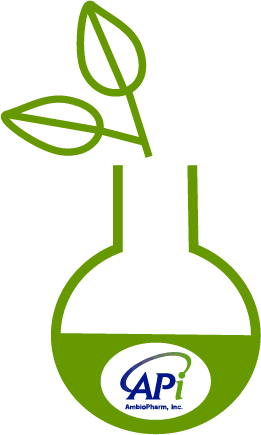
Whether performing solid-phase peptide synthesis (SPPS), solution-phase or liquid-phase peptide synthesis (LPPS), or a combination of both, several steps in the peptide synthesis process can benefit from a little “greening”.
As a part of this sustainability effort, AmbioPharm has undertaken several steps to reduce our environmental impact through green chemistry. We have become EcoVadis-rated to determine our areas of success and identify areas of improvement. Some of these initiatives include:
Solvents
AmbioPharm has recently added solvent recycling (or solvent recovery) systems in our manufacturing facility in Shanghai, acetonitrile (ACN or MeCN) recovery was established first, followed by key solvents such as dimethylformamide (DMF) and methyl t-butyl ether (MTBE) in the future. This reduces the amount of hazardous waste coming from our facilities. Green solvents are chosen whenever possible.
Reagents
While peptide synthesis often uses excess reagents, care is taken to develop synthesis methods that use reagents efficiently. The AmbioPharm model strives to use bulk starting materials in close proximity to the source, reducing transport distances, and, as a result, reducing our carbon footprint. In addition, when possible, reagents are chosen with the least health, safety, and environmental concerns.
Equipment
Efforts are made to use energy efficient equipment and methods. Isolation methods such as crystallization, precipitation, and spray drying that have lower energy consumption have been developed and /or considered as alternatives to lyophilization. In addition, tangential flow filtration (TFF) is an efficient way of removing impurities from large-volumes. Microwave peptide synthesizers enable speedier synthesis, often with less activator usage.
Process
Process development is also an integral step in developing a sustainable peptide manufacturing process. Perfecting process and sustainability at the early phases of peptide development saves valuable time and resources down the road.
Becoming sustainable is a journey. Follow along with us as we continually expand and improve upon our green peptide chemistry initiatives.
For further reading, here are our articles on Green Peptide Chemistry:
View our recent presentation on Sustainability and Green Peptide Chemistry:
Additional Resources:
Isidro-Llobet, A., Kenworthy, M.N., Mukherjee, S., Kopach, M.E., Wegner, K., Gallou, F. Smith, A.G., & Roschangar, F. (2019). Sustainability Challenges in Peptide Synthesis and Purification: From R&D to Production. The Journal of Organic Chemistry, 84 (8), 4615-4628. DOI: 10.1021/acs.joc.8b03001
Al Musaimi, O., de la Torre, B.G., & Albericio, F. (2020). Greening Fmoc/tBu Solid-Phase Peptide Synthesis. Green Chemistry, 22, 996-1018.
SETTING A NEW STANDARD
Have a Peptide project?